
At Hurwitz Law Group, we recognize that incarceration can significantly affect a person emotionally and financially. That's why we strive to help you keep your finances in order while you're away from home. From joint bank accounts to prison accounts, our team is here to assist you through the details and ensure your family remains cared for during this difficult time.
We'll also discuss how best to manage property or assets throughout imprisonment so that everything will be set up for success as soon as possible when it comes time for release. Allowing us to advise on these matters gives individuals facing jail time more peace of mind, knowing their financial obligations are handled responsibly by professionals with their best interests at heart.
If you or someone close has been incarcerated and needs support managing their finances, contact Hurwitz Law Group today for a free consultation – give yourself some much-needed relief during this trying period!
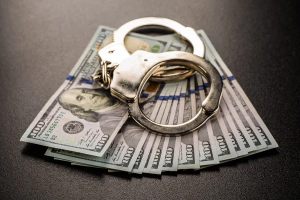
In general, individuals maintain their rights to property while incarcerated. However, there are certain situations in which their rights may be limited or altered. Understanding the nuances of property rights during incarceration is crucial for both the incarcerated individual and their loved ones who may be tasked with managing their assets.
When an individual is incarcerated, their financial assets may be affected in various ways. Your ability to pay rent and credit card bills may be impacted while you are in prison, so it is important to understand the various options.
They include:
In many cases, the money in an incarcerated individual's bank account will remain untouched, allowing them to continue earning interest and maintaining access to their funds. However, they may face difficulties managing their accounts due to limited access to communication and banking services while in jail. A seasoned attorney can assist you in navigating this process and avoid potential obstacles as much as possible.
If the incarcerated person's assets are believed to be tied to criminal activity, the government may freeze their accounts under asset forfeiture laws. In these cases, the individual may access their funds once they can prove that the assets were not acquired illegally.
This may take some time and can be complicated even if you want to pay manually. Work with an attorney with experience in this area who can help you.
Banks may also freeze accounts if they become aware that an account holder has been incarcerated. This is often done to protect the bank from potential liability if the account holder is later found to have engaged in illegal activities that could lead to asset forfeiture.
To regain access to their accounts, the incarcerated person may need to work with their legal counsel to provide documentation proving their assets are legitimate.

Managing finances while locked up can be tricky, but several options are available to help individuals maintain control of their assets. Here's how you can handle your money behind bars:
One potential route is to temporarily hand over ownership of possessions and resources to someone they trust – like a family member or loyal friend. While knowing that the property is in reliable hands could offer peace of mind, it may also come with tax issues and legal complications if not handled properly.
Another great option is granting power of attorney to an individual who has demonstrated reliability, giving them the right call shots when managing financial matters on behalf of the incarcerated person - such as paying bills, handling investments, and other financial matters.
A more formal option is to create a trust and appoint a financial professional, such as an attorney or financial advisor, as the trustee. This arrangement can provide additional protection and oversight for the incarcerated individual's assets.
The trust assets shall be managed by the trustee in compliance with the provisions specified in the trust agreement and act in the best interest of the beneficiaries, which may include the incarcerated individual and their family members.
Managing a home while incarcerated can be particularly challenging. Here are some options for addressing this situation:
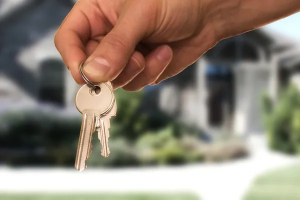
If the incarcerated individual owns a home, they may rent it out during incarceration. This income stream can help cover mortgage payments, property taxes, and maintenance expenses. It's important to employ the help of a trusted individual or property management company to oversee the rental property and handle any issues that may arise.
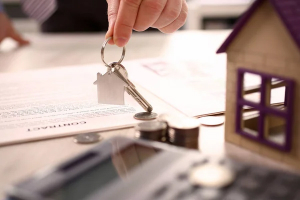
Suppose the incarcerated person decides not to rent out their home. In that case, they will need to make arrangements for its maintenance and upkeep and ongoing expenses such as mortgage payments, insurance, and property taxes.
A trusted family member or friend may be willing to assume responsibility for these tasks, or the individual may choose to hire a property management company. Regardless of the arrangement, it's important to have a plan to ensure the property is well-maintained and financially secure during incarceration.
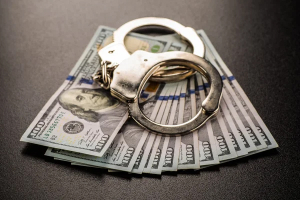
While in jail, incarcerated individuals typically have limited access to their finances. Despite these restrictions, there are still some avenues through which they can receive funds and maintain a modest amount of financial autonomy. One such method is through an inmate trust account.
So how do you deposit cash? Most facilities accept online transactions, money orders, and cashier's checks; though each establishment might have its own set of procedures, so make sure you double-check first.
Depending on the correctional institute, some processing fees may apply when depositing money into an inmate trust account. Additionally, inmates should understand all restrictions associated with their accounts. There could be limits on total amounts received and daily spending caps, plus certain services (e.g., phone call purchases) might incur additional fees too!
In rare cases, some institutions even deduct portions of deposits for outstanding debts like restitution payments or court-ordered fines. Both family members and incarcerated individuals must take note of these details concerning inmate trust accounts – not doing so could lead to issues down the line if not followed correctly!
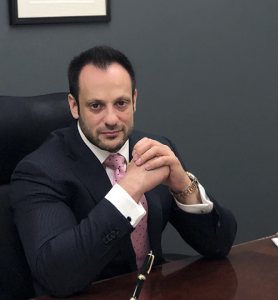
If you or a loved one are facing incarceration and have concerns about managing your property and finances, it's crucial to seek the guidance of an experienced criminal defense attorney. At Hurwitz Law Group, our skilled attorneys can help you go through the complexities of the legal system and provide advice on protecting your assets during this challenging time.
Contact us today for an initial consultation and let us help you secure the best possible outcome for your case.
Search
Categories